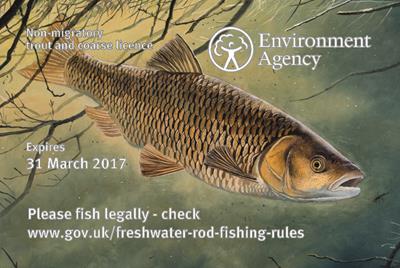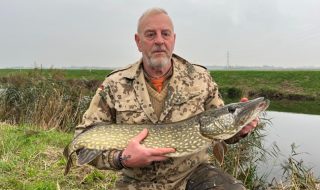The Angling Trust is leading calls for the government to halt and reverse the annual cuts to Grant in Aid to the Environment Agency (EA) for fisheries management, monitoring and regulation.
Millions of anglers will be adding extra support to the EA’s work by paying a 10% increase to the rod licence fee with effect from April 2017, but the benefit of this will be negated if government keeps cutting the Agency’s funding.
In light of rapid declines in many fish stocks, the Angling Trust, the Countryside Alliance and a number of fisheries charities have written to the government demanding that it contributes more money to restore fisheries, not less.
Fisheries Minister George Eustice responded last week to a written parliamentary question from Charles Walker MP, the Chairman of the All Party Parliamentary Angling Group, asking how much government funding for fisheries had declined in the past seven years.
The Minister was able to state that £9.4 million of Government funding was issued to the Environment Agency in 2009/10 to cover its fisheries specific duties, but he said that environmental objectives are now delivered “through an integrated approach which does not allow disaggregation”.
The reality is that fisheries funding from government is at record low levels and the Environment Agency is in danger of being unable to fulfil its statutory duties due to a lack of staff and resources.
Anglers contribute over £21 million each year through the rod licence. Although the Angling Trust acknowledges that there are indirect benefits for fish arising from the Agency’s wider work to restore polluted and degraded river catchments, there are also many direct fisheries costs which need to be shared more equally between government and the nation’s 1.3 million anglers.
Mark Lloyd, Chief Executive of the Angling Trust & Fish Legal also raised this issue at the England Fisheries Group meeting last week and said:
“The rod licence is perhaps unique because it is, generally, a popular tax and also because the funds raised are ring-fenced for a particular purpose.
“We anglers are prepared to make an increased contribution to the management and conservation of fisheries through the licence, but we expect the government to pay its fair share in recognition of the value of fisheries to society in general, not just to anglers. We are paying more than ever before in licence fees, but the government contribution stagnated for a decade and was then cut repeatedly over the past 8 years to a dangerously low level. Enough is enough.”
The income received from anglers through the rod licence for each of the last five years is provided in the table below:
Income (in million)
2015/16 £21,083
2014/15 £21,147
2013/14 £21,590
2012/13 £21,840
2011/12 £23,742






